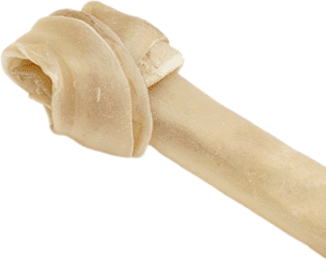


Did you know that consistent itching is one of the most common reasons dog owners seek veterinary attention for their pets?
If you find your Golden Retriever is itching and scratching more often than usual, then you’re not alone — itchy skin is one of pet owners’ most frequent health-related issues.
Luckily, there is good news: While there are plenty of potential causes for itchy skin, most of them can be diagnosed and treated relatively easily but always consult with your veterinarian.
This guide will walk you through some of the top causes of your Golden Retriever’s itchy skin, along with treatment options and tips for preventing future outbreaks.
Although Golden Retrievers are fit to be just about anybody’s best friend, they can very easily develop skin allergies.
In fact, some of the most common skin-related problems that Goldens experience are:
Ear infections are internal and common in Goldens because of their love of water and how their ears are shaped, but their symptoms can cause a physical allergic reaction around the ears. You might notice redness, an odd smell, or debris in the canal.
What to Consider If Your Golden Retriever is Itchy
So, how itchy is too itchy for your Golden Retriever?
After all, everybody gets that occasional itch – but knowing the signs for when to consult with your vet is always something you should look out for.
Think about when your Golden begins to itch and how often they do it.
When you take this into account, you might find that your Golden Retriever could be itching for non-medical or non-emergency reasons, like:
If you notice more itching than usual and cannot find the culprit of the issue, then look at the common symptoms below and potential causes so that you can tell your vet what exactly you’ve been witnessing.
There are some telltale signs of an itchy Golden Retriever that likely has underlying health problems, such as:
The presence of any of these skin issues combined with consistent itching deserves a visit to the vet: It might be caused by some of the most common skin-related health issues Goldens face, which we’ll cover in the next section.
Itchy skin often stems from the environment, food allergies, parasites, underlying infections, or plain skin irritation that leads to excessive itching. Luckily, these are diagnosable and easy to treat, so let’s jump in.
Dogs — especially Golden Retrievers — don’t always experience outdoor allergies the same way humans do, typically through watery eyes and fits of sneezing. Instead, allergies in Goldens may become present through their skin.
Whether it’s from pollen, grass, mold, dust, or trees, sometimes Goldens need a bit extra skincare during the warmer months of the year.
Your vet might prescribe injectable or oral medications, like Apoquel, Atopica, Cytopoint, or some antihistamines.
If you prefer an at-home treatment for your dog’s skin issues, your vet might suggest over-the-counter antihistamines or incorporating more fatty acids — like Omega-3 — into their diet which is extremely helpful in aiding itchy skin.
Food-related allergies make up around 10% of allergies in dogs.
Although Golden Retrievers can develop an allergy to any ingredient, the most common allergy-inducing ingredients that frequent the dog food market today are dairy, beef, chicken, soy, and wheat gluten.
If your Golden Retriever has a particularly low resistance to this type of food, their antibodies will react with the antigens, resulting in itchy skin as a symptom.
If you suspect your dog’s food is the culprit behind their itchy skin, it’s time to speak with your vet.
Your vet may recommend a hypoallergenic diet that uses protein-rich sources that are unrecognizable as antigens by their own antibodies. In other words, it helps minimize your dog’s allergic reactions by disguising antigens — what causes an allergic reaction — in their food.
Your vet may also perform a food allergy test to see what foods your Golden Retriever is most sensitive to, so you can be diligent about what ingredients you should avoid in the future.
Parasites come in all shapes and sizes — but no matter what, they’re a pain to deal with when it comes to your dog’s health.
Internal, external, or intestinal parasites are organisms that depend on a host to survive – but in doing so, the host’s health is affected, be it life-threatening or easy treatment.
Whether it’s worms, fleas, ticks, or mosquitos, dogs of all breeds are susceptible to parasites that may result in itchy skin, especially when they spend time outdoors.
One of the first things you can do is check your state’s flea and tick season. Knowing parasite seasons in your area will help you better plan when to visit your vet so they can start medication treatment.
Medication is proven to help avoid parasitic infections in dogs. If an infection is left untreated, it could result in worse symptoms or even spread to other household members.
Although invasive bacteria and an overgrowth of fungi cause bacterial and fungal infections within any dog’s system, both bacterial and fungal infections are common in Golden Retrievers.
Dogs can contract infections via contact with other animals, exposure within the environment, or simply an overgrowth of fungi that is already naturally present due to a weakened immune system.
Underlying infections may sound scary, but the good news is that they’re almost always treatable with antibiotics. Your vet will prescribe a topical or oral medication to help your dog’s antibodies fight off the infection so they’ll be good as new in no time.
Sometimes there’s nothing to be alarmed about — and your Golden Retriever is simply suffering from a bout of dry, itchy skin.
Like people, your dog’s skin reacts to temperature changes, often due to extreme weather conditions, especially in northern winters when the temperature can get pretty severe. But with a little TLC, your Golden’s dry skin is nothing you can’t help fix.
Dry skin is easily compatible with a combination of skincare techniques and products, such as:
But beware of bathing your Golden Retriever too much: Due to their uniquely thick coat and water-resistant undercoat, Goldens should only be washed every 4 to 6 weeks.
Itchy skin is never comfortable for anyone, so when your four-legged best friend is suffering from consistent itching, the first thing you want to do is get to the root of the problem.
Itchy skin is usually a result of outdoor allergies, food allergies, parasites, fungal or bacterial infections, dry skin, or simply compulsive behaviors like boredom or anxiety. If you’re unsure of what the issue is or how to treat it, always consult with your vet about your next steps.
Although Golden Retrievers are prone to skin issues, you can better guarantee a healthy dog when you choose to adopt from a reputable breeder like Snowy Pines.
Snowy Pines specializes in breeding the healthiest Golden Retrievers with the purest bloodlines that guarantee health for the duration of your puppy’s life. Learn more about our available puppies today!